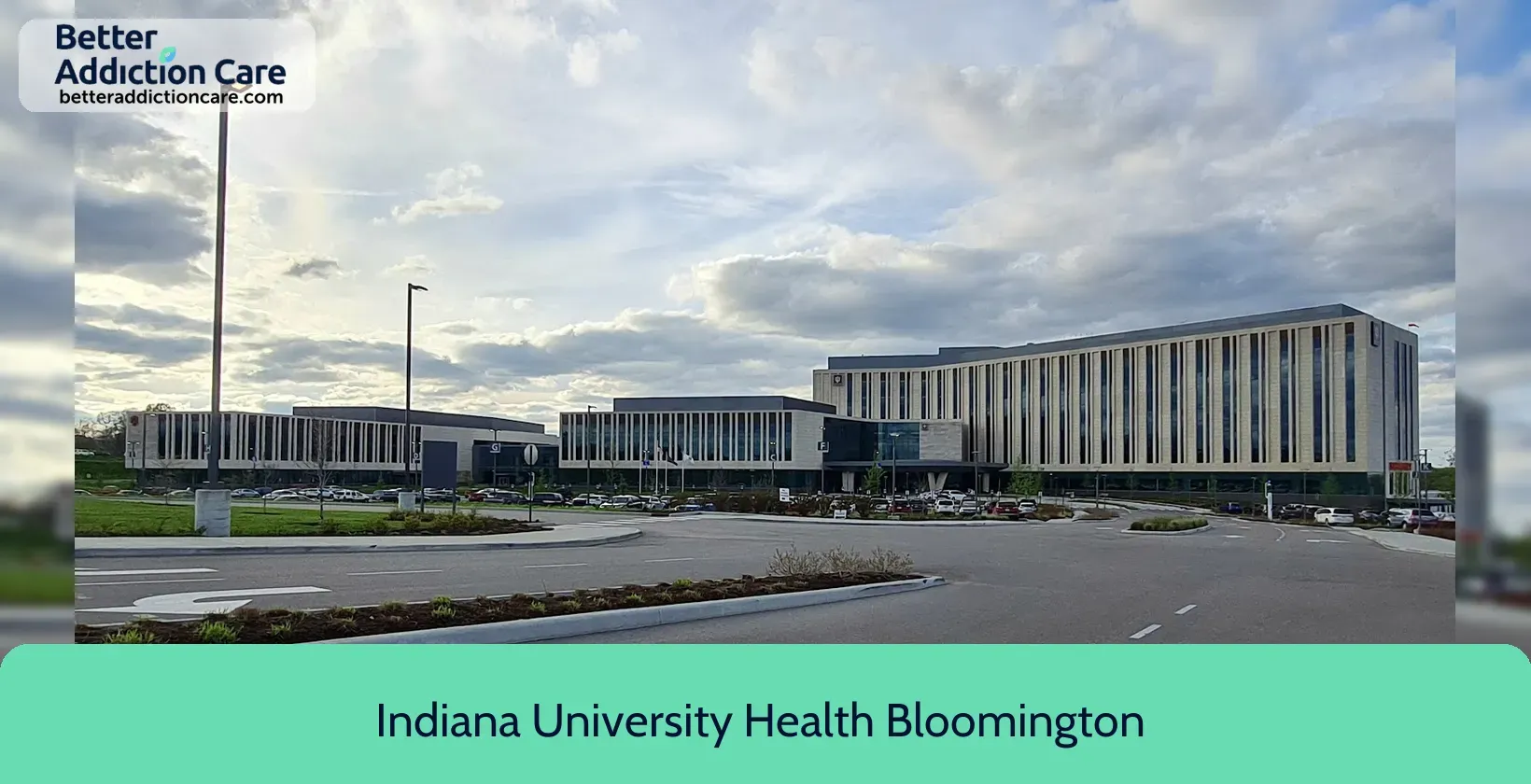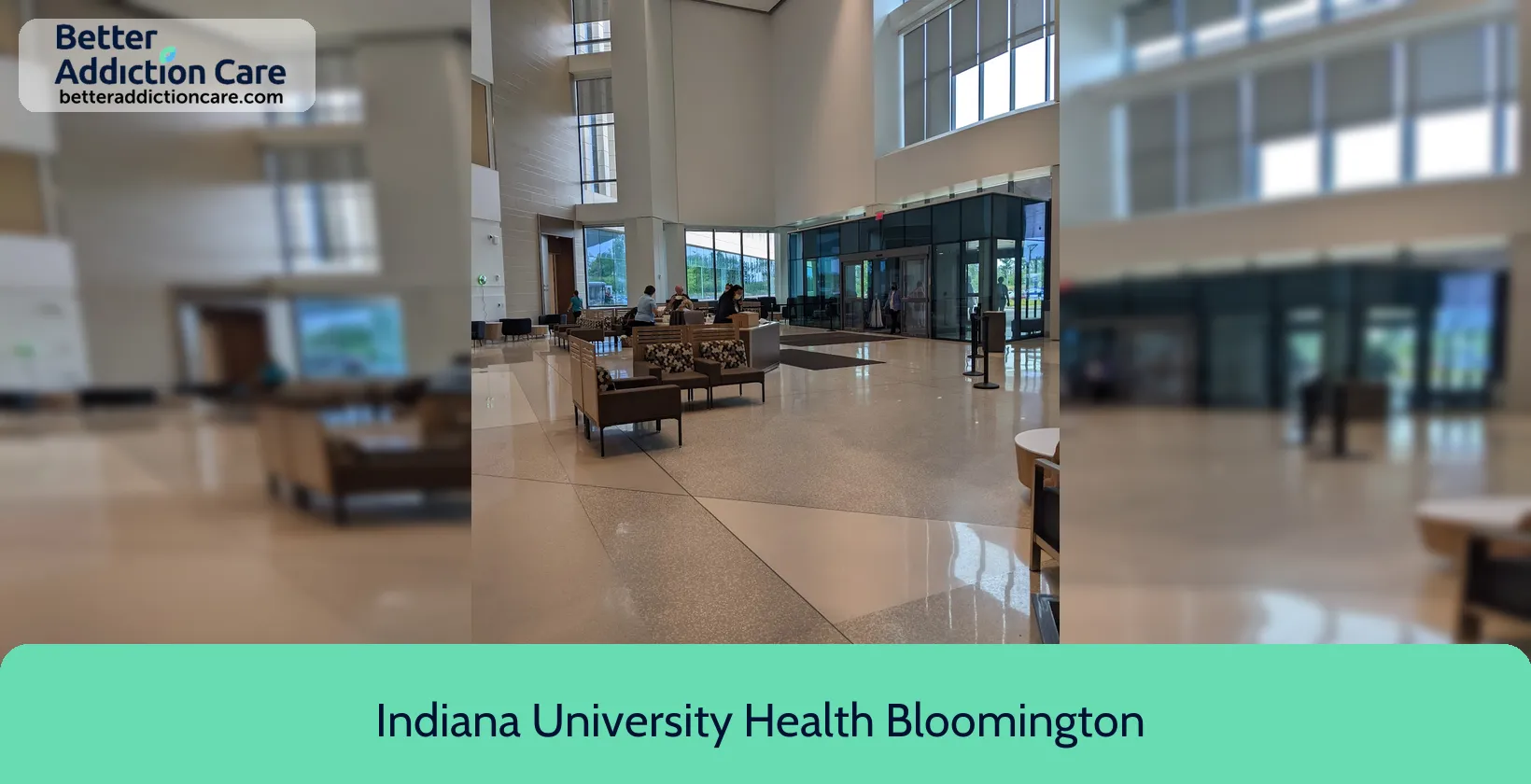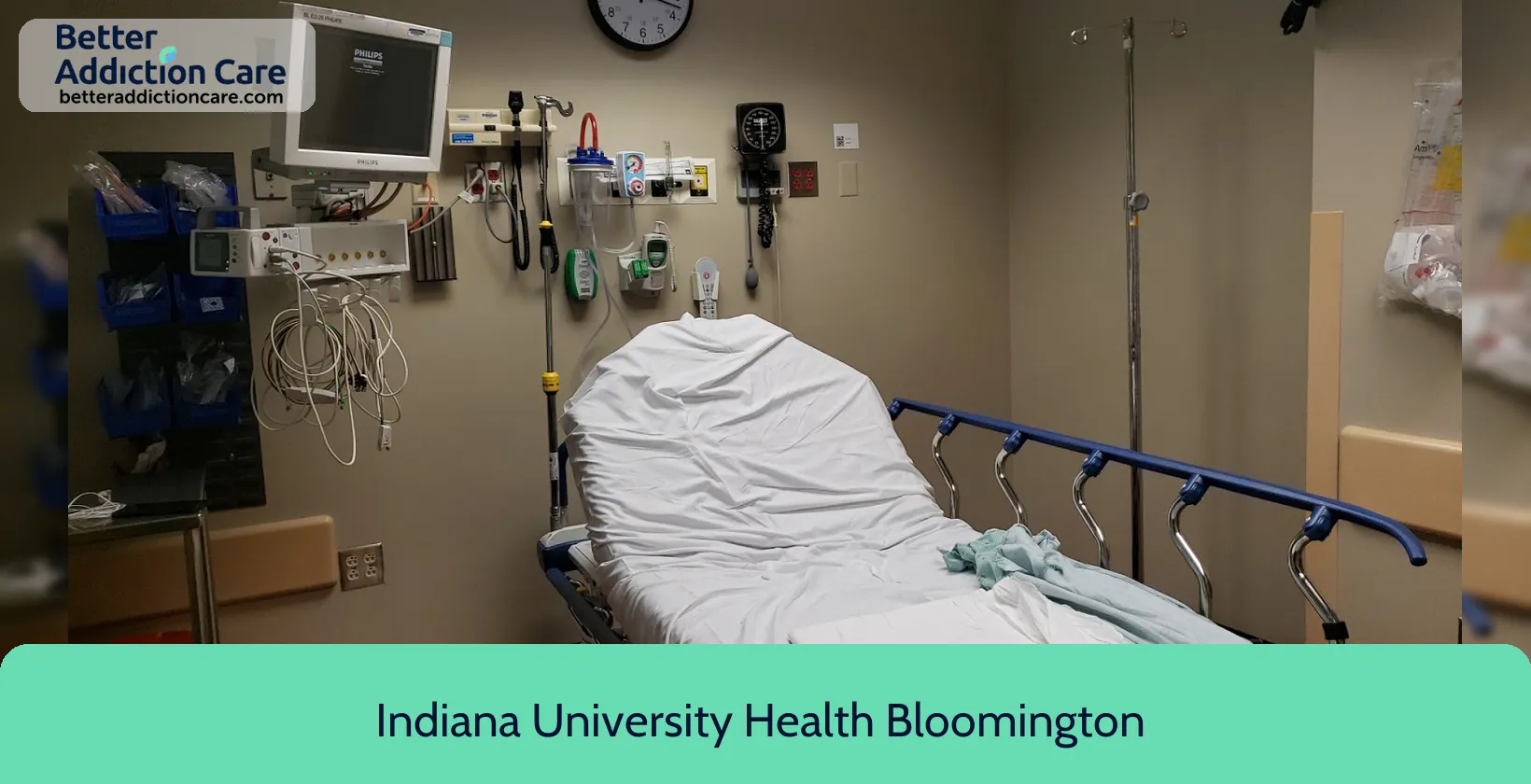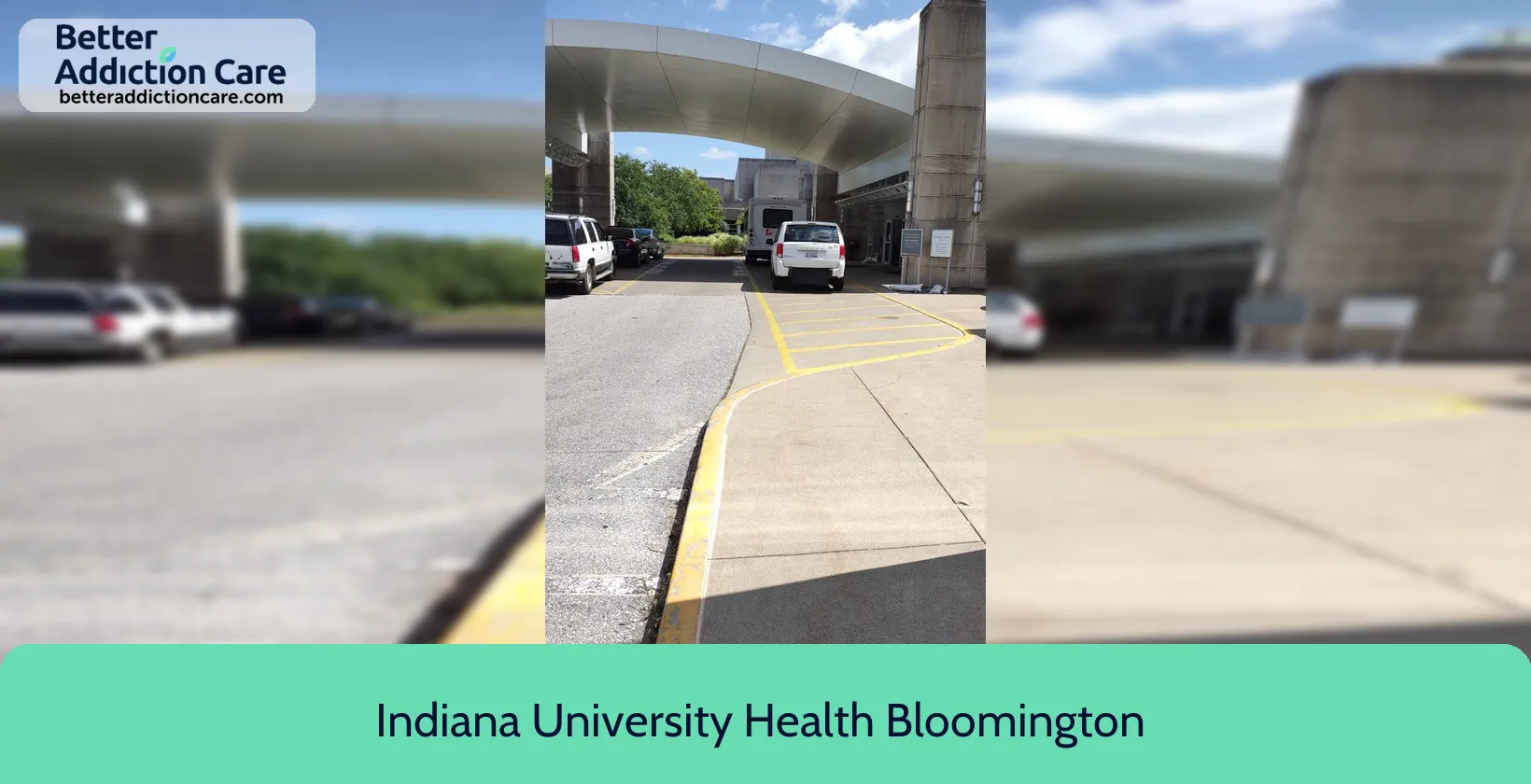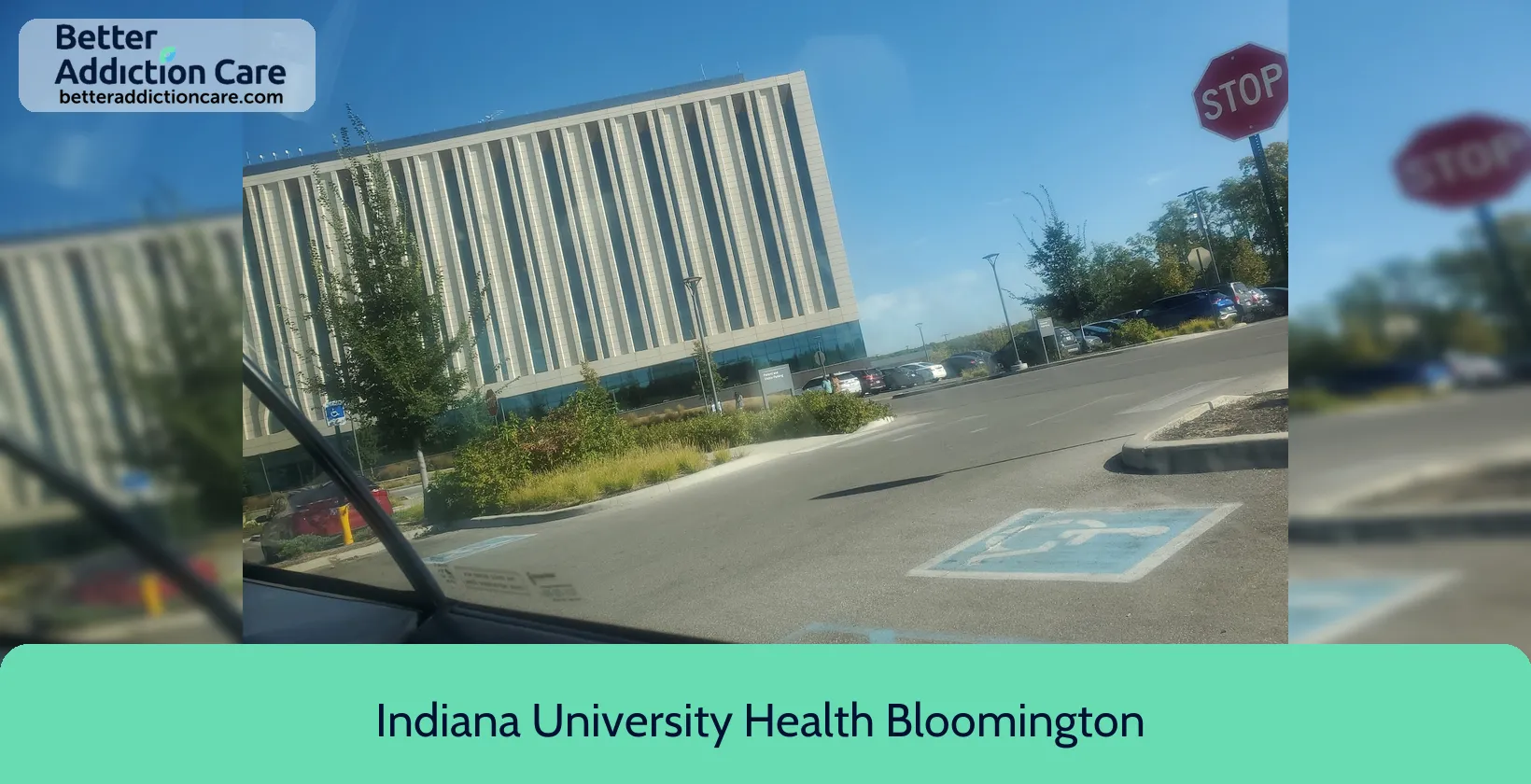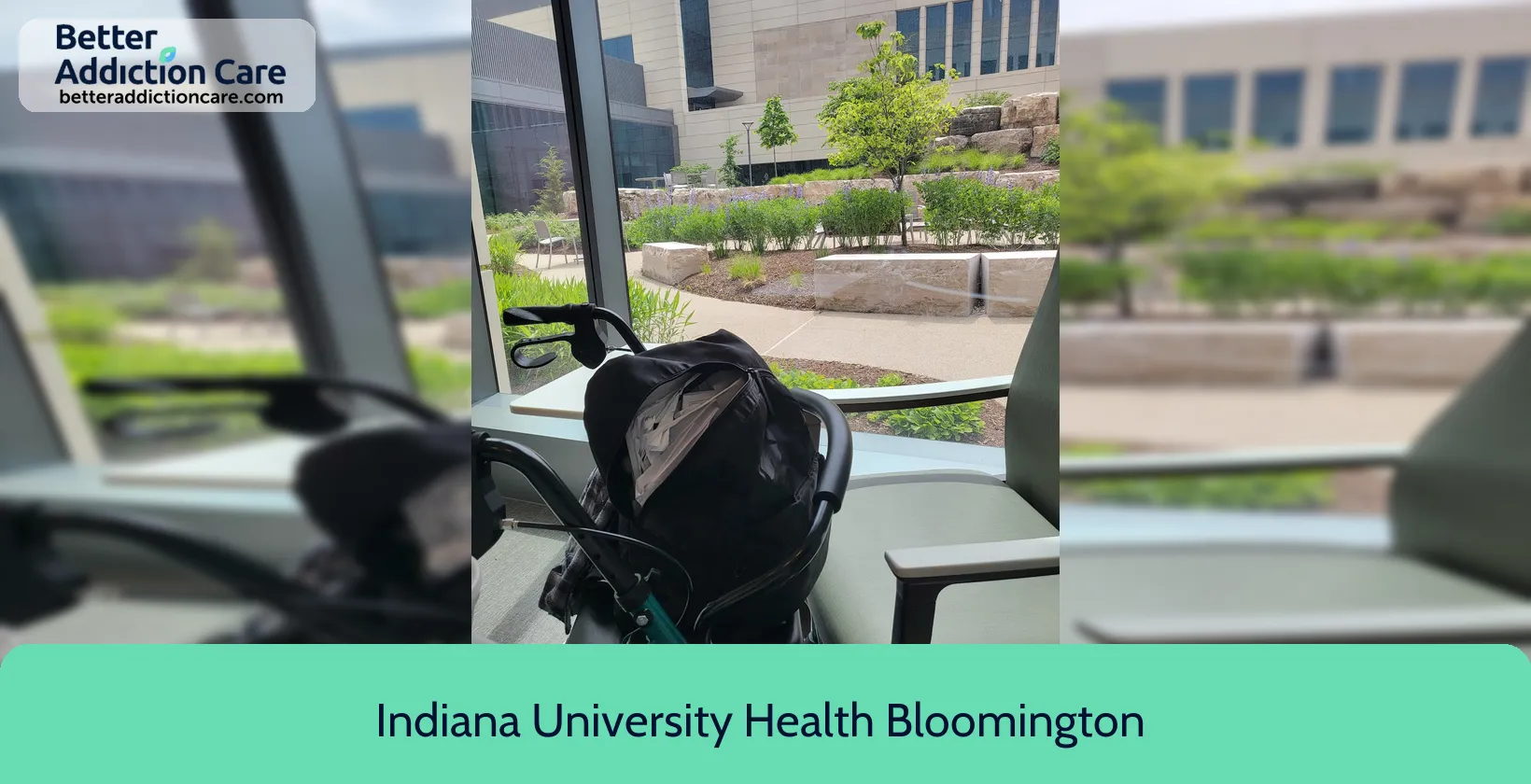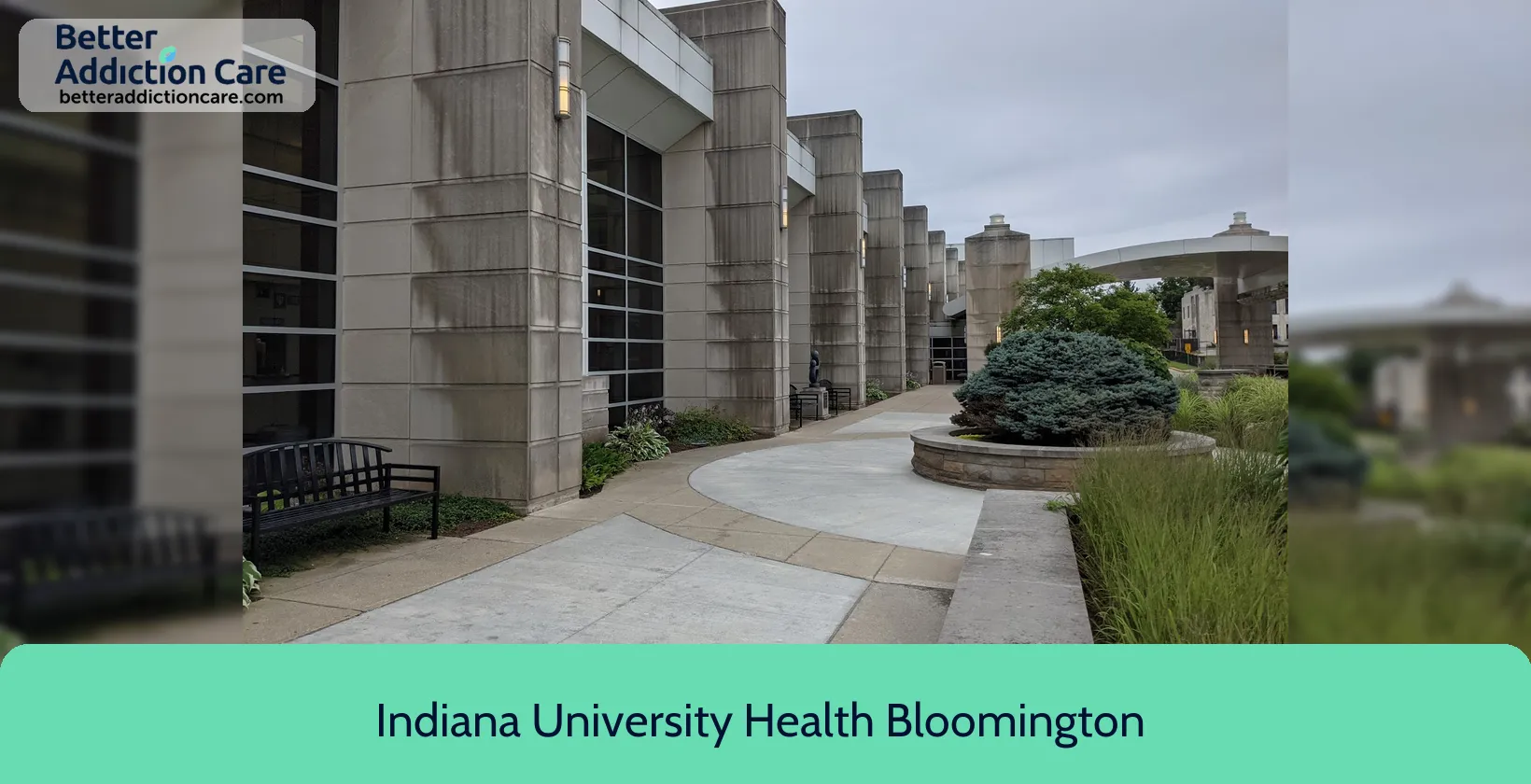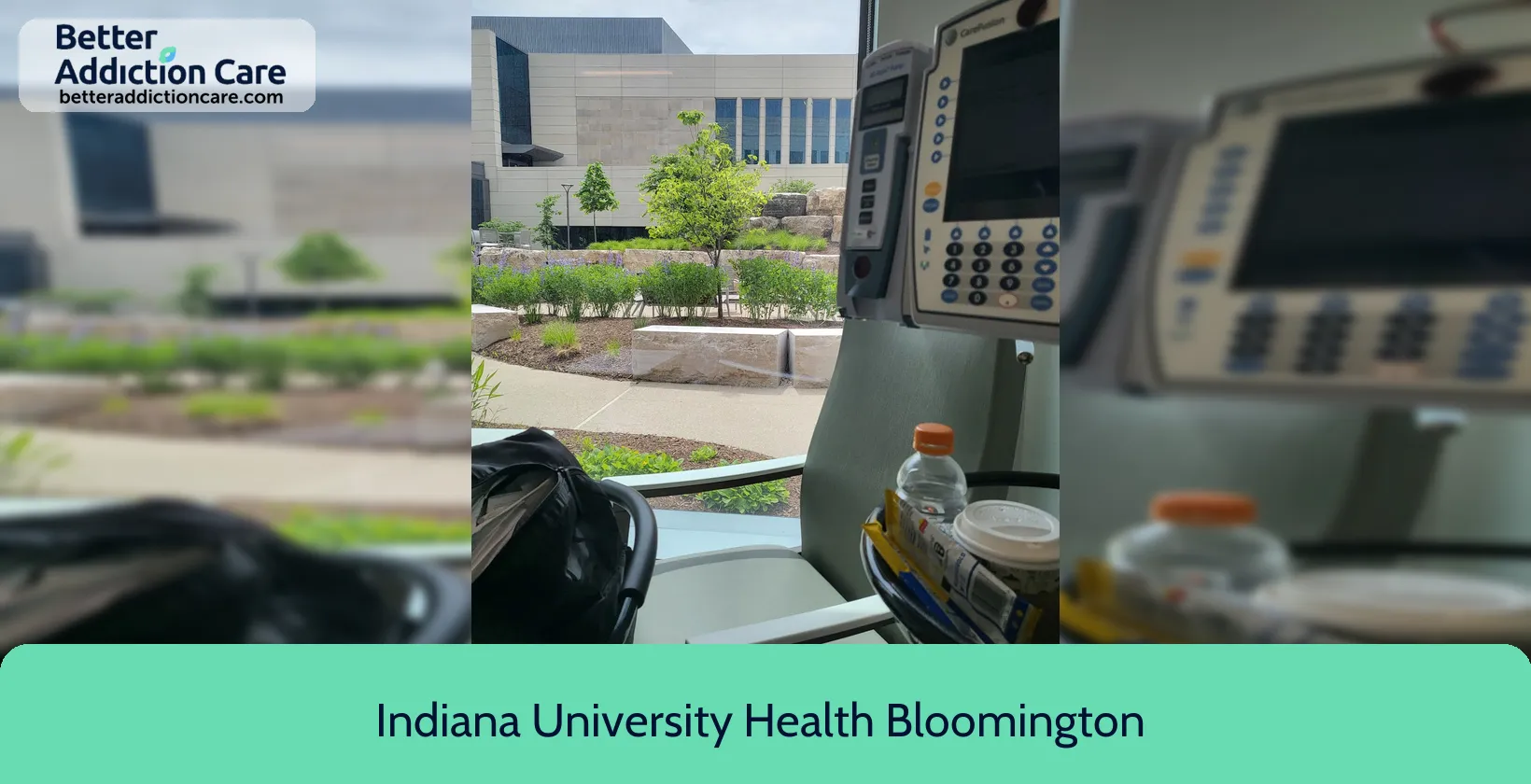Indiana University Health Bloomington - Inpatient Behavioral Health Services
Overview
Indiana University Health Bloomington - Inpatient Behavioral Health Services is a mental health treatment center for people seeking treatment near Monroe County. As part of their treatment modalities for recovery, Indiana University Health Bloomington - Inpatient Behavioral Health Services provides couples/family therapy, group counseling, and cognitive behavioral therapy during treatment. Indiana University Health Bloomington - Inpatient Behavioral Health Services is located in Bloomington, Indiana, accepting cash or self-payment for treatment.
Indiana University Health Bloomington - Inpatient Behavioral Health Services at a Glance
Payment Options
- Cash or self-payment
- Medicaid
- Medicare
- State-financed health insurance plan other than Medicaid
- Private health insurance
Assessments
- Screening for tobacco use
- Comprehensive mental health assessment
- Comprehensive substance use assessment
Age Groups
- Young adults
- Adults
- Seniors
Ancillary Services
- Case management service
- Court-ordered outpatient treatment
- Psychosocial rehabilitation services
- Suicide prevention services
Highlights About Indiana University Health Bloomington - Inpatient Behavioral Health Services
6.65/10
With an overall rating of 6.65/10, this facility has following balanced range of services. Alcohol Rehabilitation: 8.00/10, Drug Rehab and Detox: 6.00/10, Insurance and Payments: 6.00/10, Treatment Options: 6.61/10.-
Alcohol Rehabilitation 8.00
-
Treatment Options 6.61
-
Drug Rehab and Detox 6.00
-
Insurance and Payments 6.00
Treatment At Indiana University Health Bloomington - Inpatient Behavioral Health Services
Treatment Conditions
- Alcoholism
- Mental health treatment
- Substance use treatment
- Co-occurring Disorders
Care Levels
- Hospital inpatient/24-hour hospital inpatient
Treatment Modalities
- Couples/family therapy
- Group counseling
- Cognitive behavioral therapy
- Integrated Mental and Substance Use Disorder treatment
- Activity therapy
Ancillary Services
Languages
- Sign language services for the deaf and hard of hearing
Special Programs
- Clients with co-occurring mental and substance use disorders
- Clients who have experienced trauma
- Persons with post-traumatic stress disorder (PTSD)
- Persons experiencing first-episode psychosis
Get Help Now
Common Questions About Indiana University Health Bloomington - Inpatient Behavioral Health Services
Contact Information
Other Facilities in Bloomington

6.65

7.31

6.65

6.92

6.94

6.71

8.12

7.69
DISCLAIMER: The facility name, logo and brand are the property and registered trademarks of Centerstone 645 South Rogers Street, and are being used for identification and informational purposes only. Use of these names, logos and brands shall not imply endorsement. BetterAddictionCare.com is not affiliated with or sponsored by Centerstone 645 South Rogers Street.
